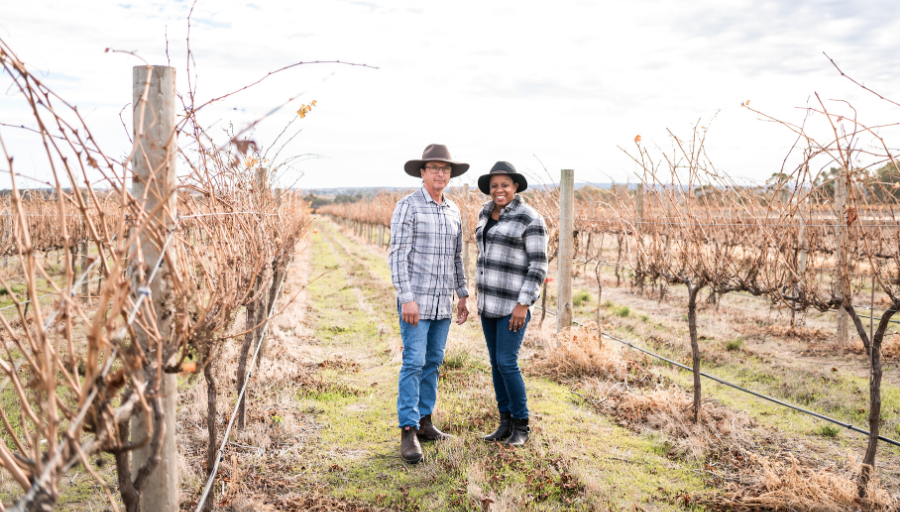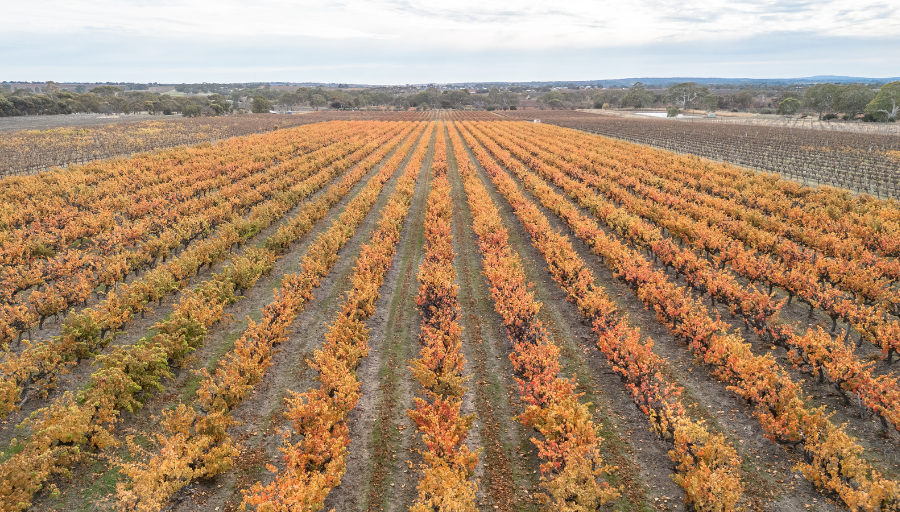A new venture in viticulture: Realising dreams with RIC support

Applying for a RIC loan has enabled a South Australian couple to kickstart their grape-growing business.
Yiannis Fragos and his partner, Ivon Pial Jarrosay, operate Pial Fragos on the plains of Willunga after purchasing their vineyard in late 2024 with help from a RIC AgriStarter Loan.
The operation grows Chardonnay, Cabernet Sauvignon, Grenache, Merlot, and Shiraz grapes, which it supplies to wineries in McLaren Vale, the Barossa Valley and Langhorne Creek.
“These varieties have thrived in our region for the past 30 years, and we believe they embody the rich potential of our land,” Yiannis said.
“In addition to our grapevines, we have a flourishing olive orchard with Jumbo, Kalamata, Koronaki, Mediterranean, Verdale, and Volos varieties.
“We also cultivate a variety of figs, pomegranates, plums, and gum trees, adding diversity to our agricultural offerings.”
Yiannis has 30 years’ experience in agriculture and viticulture, including as a vineyard manager, while Ivon is a Certified Practicing Accountant. “I have dedicated my career to cultivating the land and nurturing vines,” he said. “My passion for the industry is rooted in my love for food, wine, and entertaining.”
With their children grown and independent, Yiannis and Ivon were ready to embrace the challenge of starting their first business together.
“We enjoy staying active and growing our own produce, which makes this venture even more fulfilling,” he said.
They considered an AgriStarter Loan after learning about RIC through the media. “We learned about the discounted loan options available for new farmers in financial need, which made us consider applying for a RIC loan to help kickstart our business,” Yiannis said.
“We are currently facing record low prices for grapes, coupled with unprecedented highs in input costs. “The recent dry weather has added another layer of complexity, as it means we require fewer chemicals on our grapes, but it also raises concerns about the sustainability of our yields.”

Yiannis’ mother owned the property before the couple embarked on their first farming business – they qualified for a RIC loan because Yiannis brought more than the required 3 years’ experience in the industry, combined with the recent purchase of the land. The vineyard has been in the family since 1968, with the first vines planted in 1972, which has made the endeavour even more significant for them.
“Using our RIC loan to purchase the vineyard from my mother has greatly improved our cash flow, allowing us to manage our finances more effectively with less interest to pay each month,” Yiannis said.
He said the benefit of the RIC loan’s 5-year interest-only period was helping the couple navigate day-to-day operations against the industry-standard of delayed income payments for grapes.
“While it’s only been 6 months since we acquired the vineyard, we are optimistic about how the RIC loan will help us weather these dry conditions,” he said.
“Recently, we were able to invest in replacing the gearbox on our spray tank, which is crucial for maintaining the quality of our operations.
“Looking ahead, we have exciting plans for our vineyard: we aim to graft unproductive vines and plant more olive trees.”

Yiannis said preparation was key to applying for a RIC loan, particularly when it came to putting together a business plan.
He said the business plan, which reflected his processes and ethos, helped to communicate a consistent vision for a generational business with RIC and his commercial lender.
Now his operations are in full swing, he said the preliminary process has helped him apply those practices to his business.
“The application process, along with bank applications, can be quite demanding because you need to be self-reflective,” he said.
“However, the effort is definitely worth it, as the loans come with payment terms that can ease financial burdens and support growth.”
To find out if a RIC AgriStarter Loan is right for you, click here
